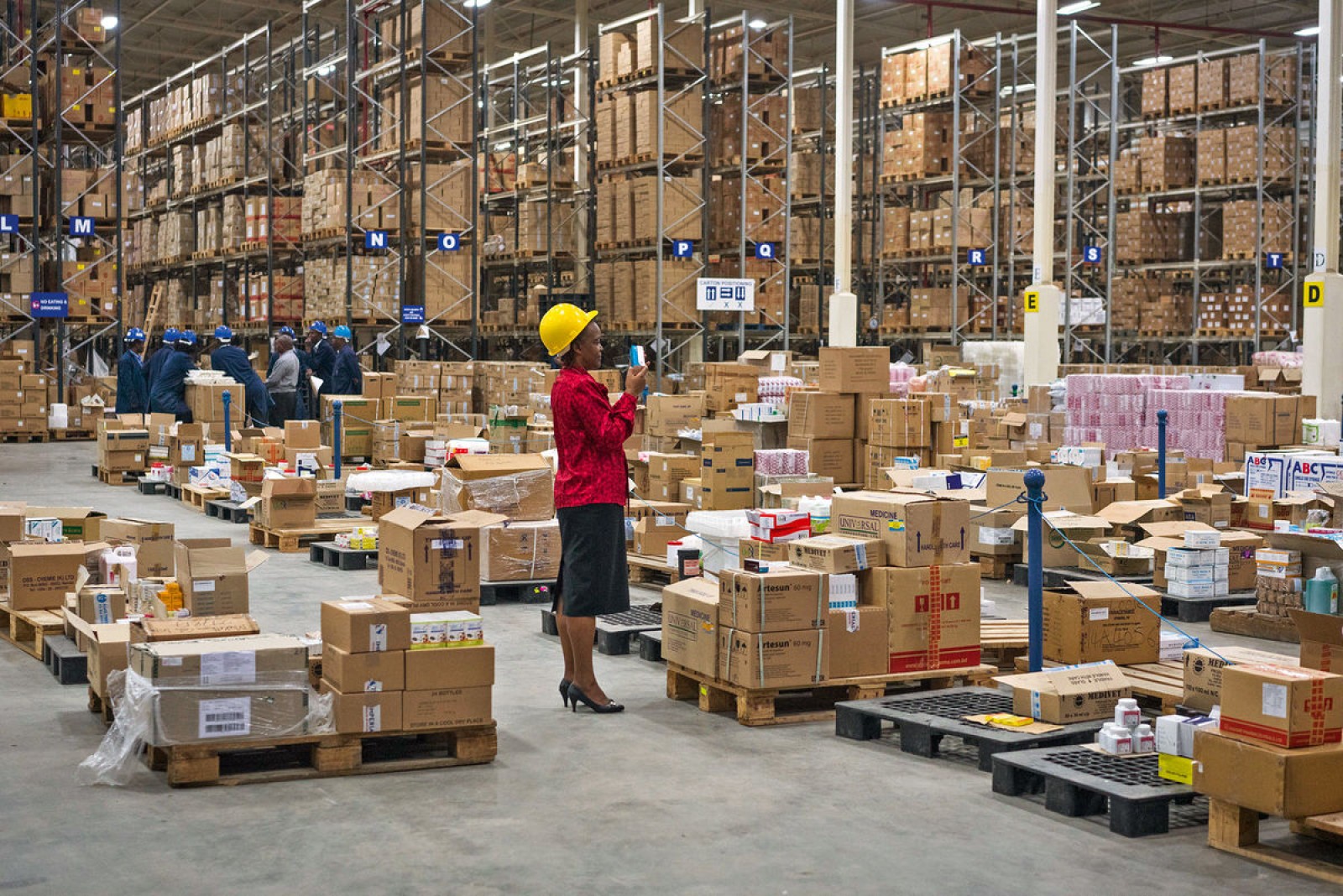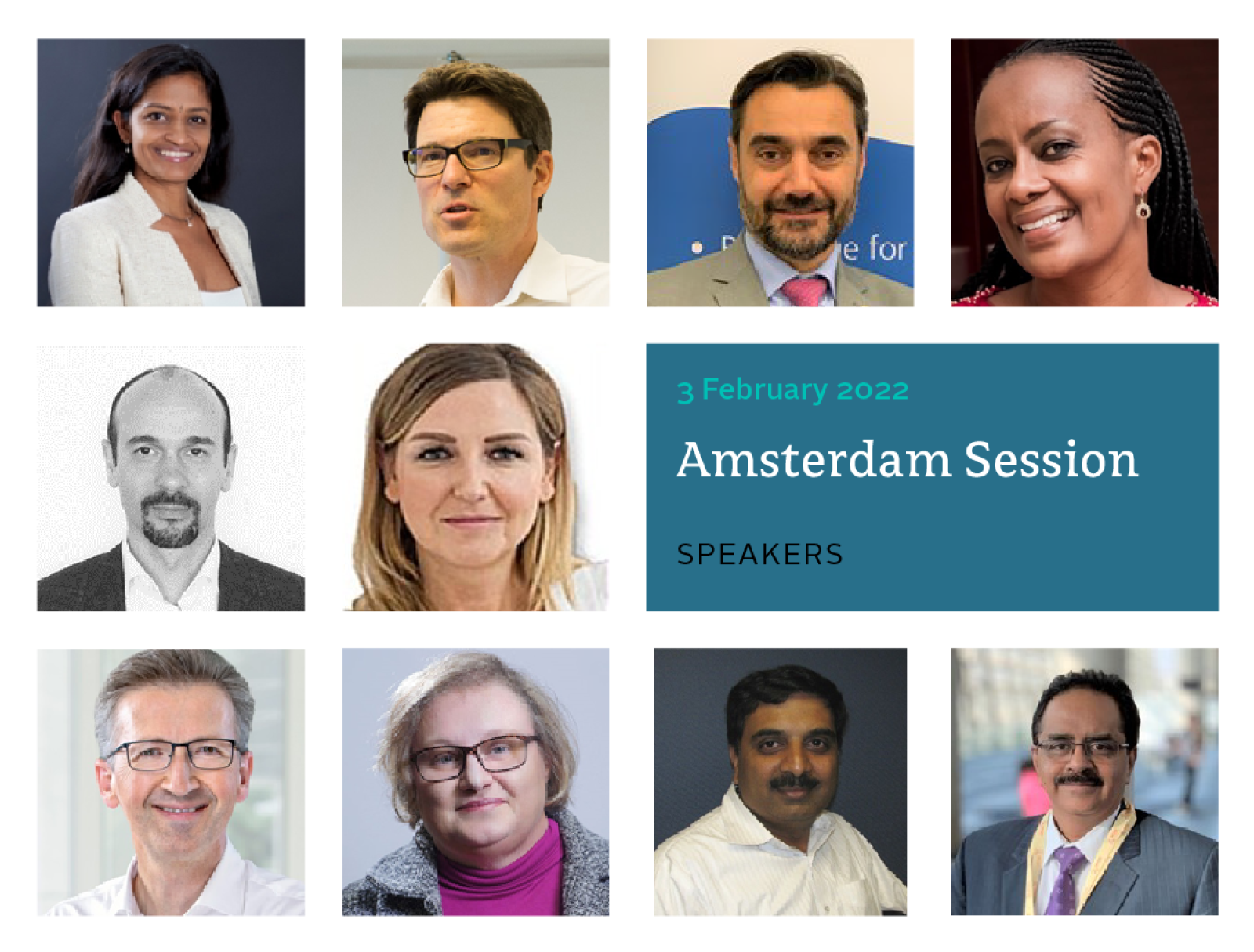Three ways to fix healthcare supply chains and improve global health security
The impact of the COVID-19 pandemic on the global medical supply chain has been exacerbated by core weaknesses in how essential medicines and vaccines are produced and procured
At this roundtable event, participants shared strategies for reducing the risk of shortages and stockouts, and safeguarding continuity of supply, such as the shift from a 'just in time' to a 'just in case' mindset
The solutions identified have been captured by the Access to Medicine Foundation in a new meeting report, available for download

When the COVID-19 pandemic hit, it shone a light on many vulnerabilities within the supply chains of essential health products. These vulnerabilities have been a concern for some time, but this crisis has brought fresh attention to the scale and importance of the issue, triggering a broader shift in attitudes towards global health security.
By bringing together an expert panel and peers from industry, global health, government and procurement for a virtual event on 3 February 2022, the Access to Medicine Foundation has been able to pinpoint strategies to prevent shortages and stockouts of essential medicines and vaccines.
Amsterdam Session on global health security
This was the latest in the Foundation's series of ‘Amsterdam Sessions’, which are meetings and roundtables convened by the Foundation for peers working with and within healthcare sectors to address specific topics and challenges in access to medicine. The event built on a key topic that emerged in our June 2021 Amsterdam Session on lessons learned from COVID-19, during which supply chain resiliency was central to the discussion.
The roundtable was held under the Chatham House Rule, with panels moderated by Jayasree K. Iyer, CEO of the Access to Medicine Foundation, and Peter Beyer, Head of the Impact Initiatives and Research Coordination Unit of the AMR Division at the World Health Organization.
Supply chains urgently need to become more robust and resilient in order to absorb disruptions which could otherwise threaten the continuous delivery of critical medicines and vaccines to the people who need them, especially in low- and middle-income countries (LMICs). Producers and procurers must think constructively about how to tackle the core issues that can lead to devastating shortages and stockouts – Jayasree K. Iyer, CEO

Identifying the problems
Challenges highlighted by participants included shortages, stockouts, spikes in pricing, sudden peaks in demand, and disruptions to international shipping. The realities of the last two years have prompted many within the industry to adjust their mindsets and to address the risk of future shocks, whether that be another pandemic, a geopolitical crisis, a natural disaster, or climate change – and the event provided a forum to share and identify both insights and solutions.
In particular, there is increasing recognition among both companies and procurers that an over-reliance on a small number of suppliers, or suppliers concentrated in one region or country, is a significant vulnerability.
Boosting global health security: 3 key takeaways
Participants shared their experiences of strategies used to safeguard and strengthen supply chains, as well as discussing changes in procurement policies that can help stimulate better access and quality.
These solutions, which are explored in greater depth in the meeting report, include switching to a ‘just in case’ model rather than ‘just in time’; smart forecasting and demand planning; dual supply chains for key products and components; measures to ensure better local availability; a shift in criteria for supplier selection; greater communication between suppliers and procurers; and diversifying the supplier base.
The meeting report also identifies three key takeaways from the Amsterdam Session:
Challenges to global health security can be both chronic (e.g. the overconcentration of suppliers) and sudden (e.g. geopolitical crises), posing serious threats to global access to medicine and essential healthcare.
It is vital that global health security is front-of-mind in decision-making – whether that means companies shifting from a ‘just in time’ to a ‘just in case’ approach to manufacturing, or procurers considering continuity of supply as a factor in tender processes, or institutional investors making this a priority at the boardroom level. All stakeholders in the global medical supply chain will benefit from working closely together to prepare for future shocks, and then collaborating and cooperating when crises do occur.
Manufacturers and procurers alike should move away from single-source or limited supply chains of both raw materials and finished products.
For companies, this may involve expanding the raw material supplier network and looking carefully at which suppliers to use; and for procurers, this may involve awarding tenders to a more diverse range of suppliers. Technology transfers, capacity building, and collaborations between multinational corporations and local manufacturers can boost local availability of essential medicines and vaccines.
The last two years have highlighted the many interconnections between different parts of the pharmaceutical and healthcare industries, as well as specific challenges in certain sectors and supply chains. In order to make sure that everyone has access to the medicines, vaccines and healthcare products they need – and in order to reach the UN’s goal of Universal Health Coverage (UCH) by 2030 – we must bolster global health security by making sure there are no weak links across the entire continuum of care.
This involves identifying the biggest vulnerabilities in access, e.g. in specific healthcare sectors and specific regions of the world, and taking action. More players need to get involved, including those who produce essential products such as diagnostics, vaccines, and medical gases. This approach is part of the Access to Medicine Foundation’s new Strategic Direction, as we bring a broader range of essential healthcare companies to the table.
Next steps
The Access to Medicine Foundation will use the insights from this Amsterdam Session in our engagements with companies, governments, procurers and investors, in order to stimulate wider adoption of good practices and maintain the momentum around addressing vulnerabilities in the global supply of essential medicines and vaccines. In addition, the upcoming 2022 Access to Medicine Index will provide further data and detail of pharmaceutical companies' actions to prevent shortages and stockouts.
Across the next year, the Foundation will bring a broader range of essential healthcare companies to the table as part of our new Strategic Direction for 2022-2026, which will see our work expand in key sectors such as generic medicines, vaccines, diagnostics and medical oxygen. These sectors have experienced many of the vulnerabilities and challenges outlined by participants in the Amsterdam Session, and we will be exploring how to implement the lessons learned in order to strengthen global health security.
Further Amsterdam Sessions on other critical access-to-medicine topics will follow in the coming months.

